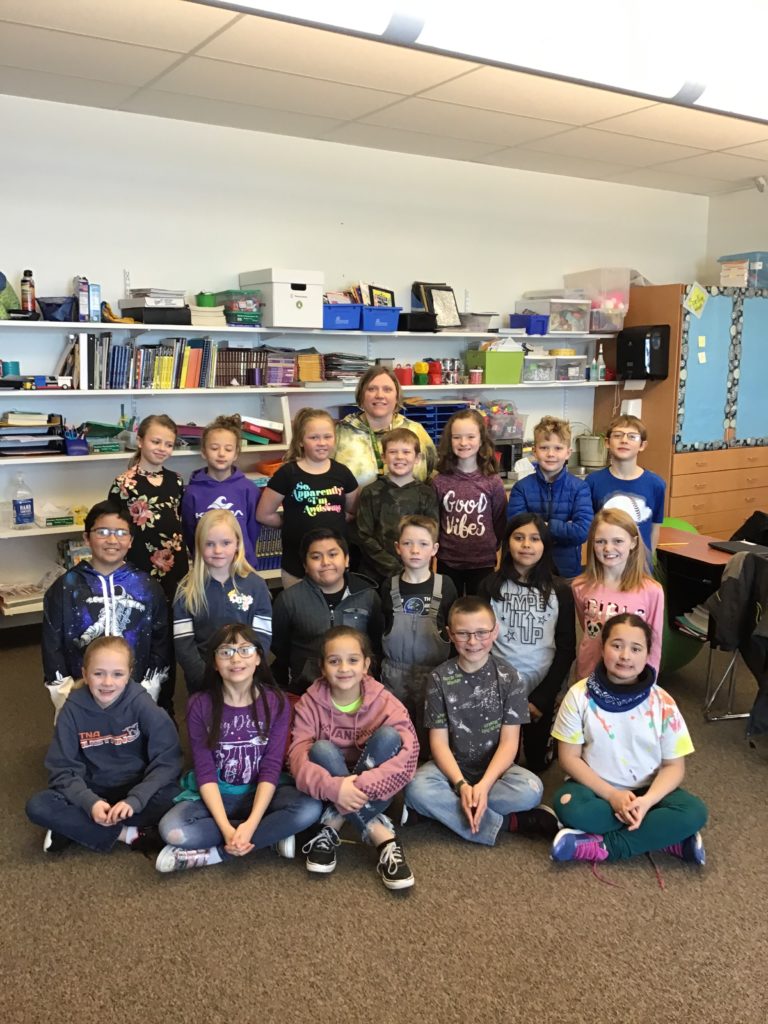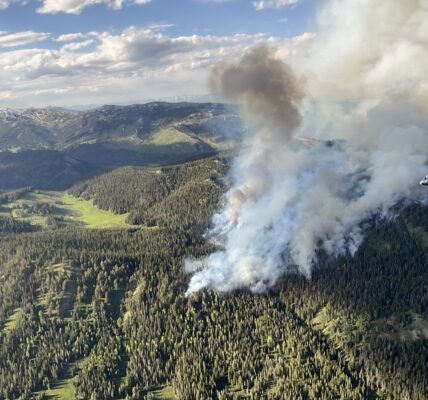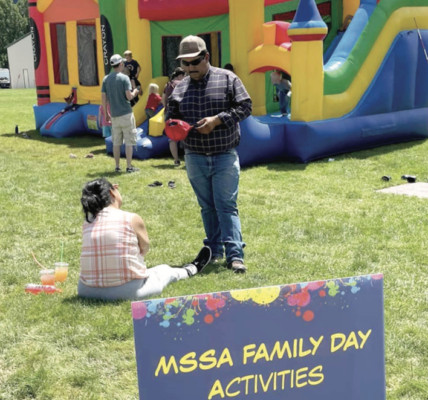Planting Education: Etna 4th graders are growing classroom success with the idea of school garden.

Fourth grade students in Adele Helgesen’s classroom at Etna Elementary School are investigating the process of creating a school garden and taking preliminary steps to make that happen at Etna Elementary School.
Initially, this was a research and writing project that Helgesen wanted her students to create together. They were prompted to consider what could be done to make Etna a better school.
The class brainstormed student ideas which included having more recess time and playing games all day. Then Helgesen reminded them that every research and writing project has an audience, and that their audience would be LCSD2 Assistant Superintendent Dr. Amanda McAdams. McAdams would be invited to join their class when they presented their research project.
“This lesson was powerful because it taught them how to write to an audience,” said Helgesen. “We knew that Dr. McAdams would never allow us to play games all day. So, we narrowed it down and we landed on a school garden.”
Each student took responsibility for researching the prospect of having a school garden, what they would need to do to fund it and create it, and whether school gardens had been grown before.
“We learned all the benefits that a school garden would give to our school and community,” said Helgesen. “We did a lot of research. Casper has two elementary school gardens and we learned their mission statement. We also found out that KarenDee Goodson [a teacher at Etna Elementary] has a horticulture degree and has worked in a lot of greenhouses. We invited her to do a presentation for our class where we gathered more information. The more information that we gathered, the more we wanted to have a school garden here at Etna.”
To present their research findings, the class prepared a slide show outlining their research conclusions and opinions about the value of creating a school garden at Etna Elementary School.
“Mrs. Helgesen invited me to hear the culmination of a project that entailed immense research by the 4th grade students regarding a school garden,” said McAdams. “Each student in the class stood up with a microphone and read a portion of their opinion research essay to me in front of the entire class. I heard many great claims about why Etna Elementary should pursue a school garden and I want to celebrate the hard work of these students and the vision of their amazing teacher.”
Here are some of the observations that students made during their research and included in their presentation:
• Hayden asked, “Do you think we need school gardens? I do. It will grow our brains.”
• Brinnley said, “School gardens are a good thing to have at school. When you have a school garden, it helps the kids by helping them know how to grow things and the garden provides a context for understanding seasonality and life cycles.”
• “Students learn focus, patience, cooperation, teamwork, and social skills. A school garden is a wonderful [way] to use the schoolyard as a classroom,” reported Taylor.
• Trefren reminded the audience that “Lady bugs will love the garden. Here’s a list of bugs: lady bugs and manties. Please help us get a school garden.”
• “School gardens take a lot of hard work, patience, and responsibility. Every week, we could take turns watering our own food,” added other students.
• Bristal reported that “School gardens began in the United States of America in the early 1900’s.”
• “School gardens help students care about the environment,” said Rayne. “We need to weed and water them. Plants help the environment in many ways. Plants clean the air and help provide water and healthy food. For example, school gardens can be a great help for the environment.”
• “A school garden helps you focus,” said Sanoemalie. “If you have a garden, you can have a variety of food. One thing Miss Goodson said is that the stuff on the bottom of your shoe is dirt not soil. Soil is what you grow plants with. Did you know you can eat dandelions? The best part of gardening is when they’re done growing and you can eat them.”
• Denali included financial ideas in her report. “The first step is that we would have to get permission from Mr. Klien and see if it is ok with the rest of the school to do the school garden. Next, we would find a good spot for the garden in every grade. We would have some sign up papers so people can sign up. The 2nd step is how we could make the money. Every kid could sign up [to make money]. The community and adults could donate some money as well. Also, some classes can have a class stand [to sell things].”
• “School gardens are amazing for kids to learn about nutrition. Instead of throwing a snack away, you can compost the snack for the garden,” suggested Zoey.
• “We could sell to the local farmers market,” said Noah. “We could donate to the poor. You could also learn how to grow, what to grow and when to grow it. You could also learn how to do mindfulness in a peaceful environment.”
• “[A garden would create] more snacks for healthy kids,” added Alex. “Plants make you calm when you’re doing a test or in the hospital when you’re scared or worried. Flowers will calm you down. When you’re frustrated, plants will calm you down really fast. Miss Goodson taught us this.”
• Summit reminded the audience, “Make sure you wash the food before you eat it.”
• “The spot can be on the hill and we will all take turns,” suggested Lindsay.
• “Also, kids can study economics and she [Goodson] can teach kids how to plant,” said Ozzy. “There can be [Etna] Enrichment and the teacher can be Miss Goodson. Also, kids can study about economics and she can teach kids how to plant cabbage, carrots, cucumbers, peppers, watermelon and more.”
• “When it snows, we can have a tarp and walls,” Cameron suggested.
• “How will we protect the vegetables in the garden from damage? Outdoor vegetables gardens can be damaged by hailstorms,” reminded Ava. “We can prevent that from happening with a greenhouse to protect it from damage.”
• Parker said, “The reason we need school gardens is because…gardens can change and improve kids’ lives, their community and the planet. For example, you help hunger issues and make a difference in your community. And not all people have access to fruits and veggies.”
• Izibelle and Bristal taught, “School garden educational goals are to help students, school staff and families make the connection between growing food and good diets, and to develop life skills and increase environmental awareness.”
• “In summary, mindfulness, nutrition, responsibility, and compost will help [our] school and community be outstanding,” said Jillian. “Let’s say you had a bad day at school, and your brain feels tired, so you go to the garden and breathe in and out. Then you’ll have mindfulness bodies!!!! Gardening can improve social behavior. Gardening can offer pride and spirit.”
“When we did our presentation, everyone was so impressed with how hard my students worked and how much passion they had about this idea,” said Helgesen. “Hayden went home and started looking at grants on how we could get money for a garden. That will be our biggest hurdle to achieve.”
Helgesen and Goodson plan to travel to Casper this summer to see and learn about the greenhouse and gardens that have been established in the schools there. Then, grants will need to be written to generate funding.
“One thing that I told my students is that if you want to change the world, it doesn’t happen overnight,” said Helgesen. “But, with hard work, it does happen.”







